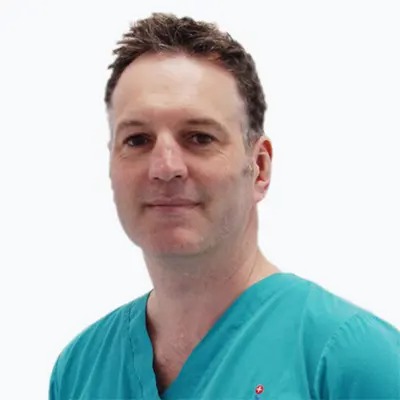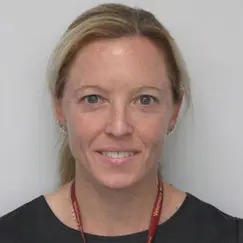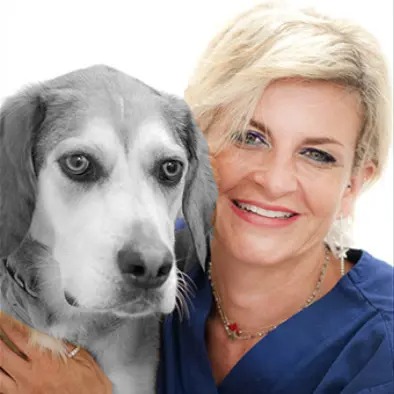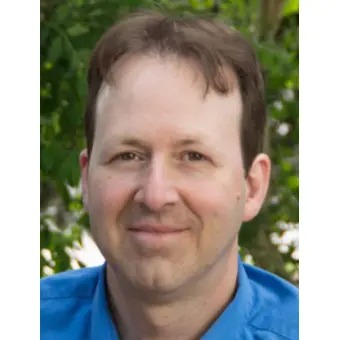Appendicular Bone Tumors in Dogs & Cats – Chemotherapy, Prognosis & Non-Surgical Therapies
Species
Small Animal
Contact Hours
3 Hours - RACE Approved
Language
English
Discipline
Diagnostic Imaging
Internal Medicine – Endocrinology, Haematology, Infectious Diseases, Parasitology & Oncology
Orthopaedics
Pathology - Clinical & Gross
Surgery
Recorded on: 10th August 2023
Panelists:
Jessica Lawrence DVM, DACVIM (Onc.), DACVR (Rad. Onc.), DECVDI (Rad. Onc.) - University of Minnesota, USA
Laura Marconato DVM, DECVIM-CA (Onc.) - University of Bologna, Italy
Bernard Séguin DVM, MS, DACVS - Central Victoria Veterinary Hospital, VCA Canada
Moderator:
Nick Bacon MA, VetMB, CertVR, CertSAS, DECVS, DACVS, FRCVS - AURA Veterinary, UK
CONTENT DESCRIPTION
Osteosarcoma is the most common malignant bone tumor in dogs, and the overall top ranked cancer in Greyhounds. Other types of bone cancer are however also found in the limbs of both dogs and cats, as well as metastatic bone lesions from a variety of primary cancers elsewhere. This complex disease therefore forces the clinician to make a variety of decisions, amongst them:
- What is the best way to get a biopsy, and do we always need a biopsy?
- What surgery (if any) is appropriate or possible?
- What chemotherapy drugs do I give, and how long for?
- When should we discuss radiation therapy, and what are the options?
- What is the best palliative approach for these patients if surgery is declined or not appropriate?
- Is there anything we can do if we discover the bone tumor has metastasized?
- Do we treat all primary appendicular bone tumors the same way?
- Which tumors metastasize to bone and how do I manage the case?
A multidisciplinary panel consisting of highly experienced and world-renowned surgical, medical and radiation oncologists are carefully navigating their way through this complicated landscape, whilst also relying on clinical oncologic research to assist with decision-making. The first of two highly clinically-oriented panel discussions focuses on the work-up (incl. tumor biopsies), untangling decision making and available therapeutic options.
There will undoubtedly be wide-ranging discussion on the issues raised above as well as innovations in the pipeline to help with diagnosis, treatment, and prognostication of appendicular bone tumors.
Nick completed a Petsaver’s surgical residency at Cambridge and a Fellowship in Surgical Oncology at Colorado State University. He was Surgical Oncology Faculty at the University of Florida from 2006-2014. Nick then moved back to the UK and was appointed Professor of Surgical Oncology at the University of Surrey School of Veterinary Medicine and co-founded AURA Veterinary, also in Guildford, Surrey. He is a Diplomate of the European and American Colleges of Veterinary Surgeons, and an ACVS Founding Fellow of Surgical Oncology.
Nick is on the Specialist Advisory Board for StreetVet (Soft Tissue and Oncology) and a founder member of the Oncology Working Group of the World Small Animal Veterinary Association (WSAVA), a group of oncology specialists from across the globe, whose mission is to improve awareness of cancer in cats and dogs to the general public, and educate how veterinary surgeons can help, regardless of geography, language and resources.
More InfoJessica Lawrence joined the University of Minnesota College of Veterinary Medicine in 2016 as an Associate Professor of Radiation Oncology. She earned her DVM from the Ontario Veterinary College and completed advanced training in radiation and medical oncology at the University of Wisconsin-Madison. Prior to joining the MCVM, Dr. Lawrence spent 3 years as an Assistant Professor of Medical Oncology at the University of Georgia before spending 3.5 years as the Head of Oncology at the Royal (Dick) School of Veterinary Studies at the University of Edinburgh. Dr. Lawrence has a strong interest in comparative oncology, and she aims to provide exceptional quality of life for pets with cancer and their owners. Dr. Lawrence is particularly interested in tumor and normal tissue radiation sensitivity and developing methods to improve tumor control with radiation therapy while minimizing side effects.
Dr. Lawrence is a clinician researcher fully engaged in the “One Health” directive as she strives to improve our understanding of the pathobiology, diagnosis, treatment and prevention of human and animal cancer and treatment-related toxicities. In particular, she is keen to improve radiation killing of cancer cells while limiting radiation-induced injury to normal tissue that may result in treatment-related complications such as organ fibrosis and bystander injury. As cancer survivors (pet or human) enjoy improved outcomes after radiation therapy for many tumor types, it is important that cancer researchers investigate treatment methods to maintain or improve quality of life after treatment. By furthering our understanding of the signals that occur after radiation in normal and cancer cells, Dr. Lawrence and her collaborators hope to develop strategies that mitigate radiation-induced injury to normal tissue.
More InfoDr Marconato obtained her degree in Veterinary Medicine (School of Veterinary Medicine, Milan) in 1999 and is a Diplomate of ECVIM-CA (Oncology) since 2008. In 2000-2003 she trained in medical oncology at the Veterinary Oncology Service and Research Center (West Chester) and at the Veterinary Oncology Services’ Radiation Center, Chalfont, PA, USA. In 2009-2011 she worked as co-head of medical oncology at the Animal Oncology and Imaging Center, Hünenberg (Switzerland), before returning to Italy as head of medical oncology at the Centro Oncologico Veterinario from 2011to 2019.
She is currently the Head of Medical Oncology and Associate Professor at the University of Bologna (Italy). She has been speaker at numerous scientific meetings, nationally and internationally, and author of >130 peer-reviewed papers. In 2011-2015 she became President of the Italian Veterinary Oncology Society (SIONCOV). Since 2014 she is the Chair of Workgroup 2 (Therapy) of the European Network of Canine Lymphoma. She is also member of VCS, ESVIM, SIONCOV.
Her research interest focuses on the dog as a spontaneous model of cancer. She is involved in many projects related to translational oncology, including active immunotherapy for the treatment of canine lymphoma, osteosarcoma, hemangiosarcoma and melanoma, in collaboration with national and international research centres.
More InfoI have always wanted to be a veterinarian, from the day I learned there were doctors who treat animals. The fact that I never changed my mind, some might say, shows my determination, while others might characterize it as stubbornness. I believe it is a little of both. Being a veterinarian has been a great privilege. I have learned so much from my patients and their owners and I have been inspired by so many mentors.
Becoming a veterinarian has been, in many respects, a great journey. Born and raised in Montreal, Canada, I graduated veterinary school from the University of Montreal. Further training took me to the University of Illinois where I completed an internship in small animal medicine and surgery. If veterinary medicine was my vocation, I discovered that surgery was my passion, so I fulfilled my residency in small animal surgery at Washington State University. Throughout my education and training as a veterinarian, I had been simultaneously fascinated and intimidated by patients afflicted with cancer. Now, I decided to make oncology my mission. I was fortunate to be accepted for a fellowship in surgical oncology at Colorado State University’s Veterinary Teaching Hospital, the only fellowship of its kind at the time.
Following the fellowship, I chose to stay in academia for a couple of reasons. First, it allowed me to teach, which I tremendously enjoy (“Give a man a fish and he will eat for a day. Teach a man to fish and he will eat for a lifetime”). Second, and just as importantly, it allowed me to pursue research. That is a benefit of academia: the incredible opportunity to fix a problem rather than just complain about it. A clinician in academia gains a unique perspective through being able to treat patients, assess the shortcomings, and actively work to find solutions to produce better outcomes. As a veterinary clinician-scientist, I can satisfy both my passion to treat animals and my curiosity for finding better, safer treatment options for my patients.
I joined the faculty at the University of California at Davis, where I spent five years, followed by seven years at Oregon State University. During this time, I was able to meet and collaborate with many talented colleagues who helped to further shape my career. My interest in translational medicine and research, fostered during my fellowship at CSU, flourished at both institutions as I took advantage of the many opportunities for collaborative research.
I am thrilled to be at Colorado State University. The comprehensive team approach to treating cancer patients, of which I was a part as a fellow, is still a hallmark of the oncology group. My research at CSU is an evolution of my previous projects. Through collaborations with colleagues, we look for new solutions and ways to improve the outcome of our patients. Although my research touches several aspects of surgical oncology, my focus is mainly on sarcomas, particularly osteosarcoma and limb sparing surgery. Oncology continues to be a rapidly evolving field and new challenges will emerge, needing to be tackled. This is where my determination, but perhaps more my stubbornness, will help me.
When not at the hospital, I enjoy time with my wife, Lisa, and our two children. My family helps to keep me grounded and able to put my work in perspective. Together, we like to be active by skiing, sailing or enjoying other activities that allow us to appreciate the beauty of nature around us.
More InfoVeterinary Student
Online Panel Discussion
USD 20.00
Qualified Vet
Online Panel Discussion
USD 110.00
Intern/Resident/PhD (Requires proof of status)
Online Panel Discussion
USD 70.00
Vet Nurse/Vet Tech (Requires proof of status)
Online Panel Discussion
USD 70.00
If the options you are looking for are unavailable, please contact us.
No tax will be added unless you are a UK taxpayer
Choose currency at checkout


















